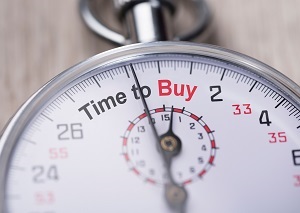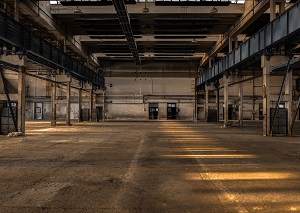7 Signs That It’s Time to Buy a New Commercial HVAC System

14 Questions to Improve Estimates, Boost Profits and Ensure Industrial HVAC Designs and Products Meet Specifications

Five Trends in Industrial Facilities Management
 Wouldn’t it by nice if commercial HVAC systems came with expiration dates like milk or salad dressing telling you exactly when replacement was imminent? If you knew your air management system would no longer be operational after a specified date, you could plan and budget for a new system, never missing a beat.
Wouldn’t it by nice if commercial HVAC systems came with expiration dates like milk or salad dressing telling you exactly when replacement was imminent? If you knew your air management system would no longer be operational after a specified date, you could plan and budget for a new system, never missing a beat.
But there are so many variables that determine how long commercial HVAC systems will be viable. The type and quality of the components, how well systems were maintained and how hard they are used all factor into how long systems will last.
Keep in mind, a 15-year-old system isn’t necessarily on its last legs, but it’s much more likely to need replacing than a 5-year-old system. That’s just a fact of life, so once systems reach the decade mark, pay closer attention to how everything is operating and note any significant changes.
So while it’s unlikely you will unequivocally know the exact date when your systems need replacing, here are 7 signs that indicate it’s time to start planning for your commercial HVAC system replacement:
- Increased maintenance requirements. One of those significant changes may be the need for increased attention beyond routine maintenance. If systems are frequently in need of repair, or if you are constantly changing worn parts, replacement might be wise.
- Utility bills rising, beyond any increases in the price of energy. Sometimes we take for granted that costs are always going up. But if utility bills increase more than the cost of energy has increased, HVAC systems are losing efficiency and may need repair or replacement.
- Heating or cooling of spaces is increasingly uneven. Bob in the corner office used to be comfortable, but lately he’s always complaining that it’s too hot or too cold. Is Bob getting old and cranky or are your HVAC systems?
- Excessive cycling. If you notice the AC cycling on and off more frequently than in the past — even on hot days — it could be a sign of trouble.
- Noises. In addition to hearing the AC cycling on and off more frequently, listen for other odd noises like grating, grinding, squealing, banging, rattling, creaking or popping. Commercial HVAC systems do not make excess noise unless something is amiss.
- Odors. Strange odors coming from HVAC systems can also indicate trouble and should never be ignored. Odor or any sign of carbon monoxide (CO) emissions should be dealt with immediately and could be a sign that your HVAC system should be replaced.
- Visible signs. Keep a watchful eye out for anything different. Visible indicators of trouble include streaks of soot, a yellow flame rather than blue, excess moisture on walls and windows, and rusting on pipes, connections and appliances.
Replacing a commercial air management system can be a major capital expense. But considering the cost of having old systems fail, it’s wise to be vigilant for the signs and signals that an aging HVAC system is on its way out. It’s better to budget for and schedule a replacement than have an unexpected shutdown. And since today’s modern HVAC systems are generally more energy efficient, replacement in a timely manner will not only make Bob in the corner office more comfortable, it could make him extra happy if he happens to be the company’s controller.




